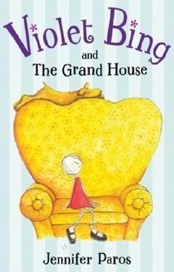The Old “What’s the point?” Thing: Caring, Pain, Baking Shows, and Cats
by Jennifer Paros
“The whole point is to live life and be – to use all the crayons in the crayon box.”
The other morning, I was surprised to find myself overtaken by a strong flash of “What’s the point?” It seemed like a sudden existential plummet, but if I’d been paying attention, I would have seen it coming. I’d gotten on a jag of thinking about unwanted things over which I had no influence – a sort of accidental meditation on powerlessness. I was in the middle of exercising and decided to put on an episode of The Great British Bake Off (a baking competition show with great heart) while I finished my workout. My despondency gradually began to subside – seemingly a byproduct of simply observing people striving to create stuff. Some cakes, pastries, and breads worked, some didn’t, but everyone was engaged, wanting to participate, and caring, both about what they were doing and each other.
The old “What’s the point?” thing is misleading; it implies both that an answer can satisfy us while simultaneously demanding that there isn’t one. “What’s the point?” is an abdication of responsibility. It is only our engagement with life that can provide a sense of purpose. There are always satisfying experiences available when we’re not judging, scrutinizing, or taking stock. Our job is to be open to those experiences.
I’ve been looking for ways to feel better physically and emotionally throughout my life. I often start out by wanting to get rid of a painful emotion, situation, or physical condition. But there’s a difference between caring for ourselves and trying to get away from something. Caring is part of a creative focus; it reflects interest, appreciation, and willingness – engagement. It is forward-looking. Trying to rid ourselves of something keeps us looking back at what seems to have a hold on us.
In the film, Kedi – a documentary about the many cats living on the streets of Istanbul – most of the cats don’t belong to anyone but are commonly looked after by those in the neighborhoods. The film profiles a number of people–to-cat relationships. One man describes having had a mental breakdown and ongoing depression. He says no medication or therapy helped him. Then he started bringing food to groups of strays. He attributes getting better to regularly looking after the cats. He was finally able to go forward once he followed the path of his own caring and rediscovered his willingness to be in an engaged relationship with life. In doing so, he naturally left behind what was so painful to him.
“You can be passionate about anything. Pay attention; don’t let life go by you. Fall in love with the back of your cereal box.”
Recently I’ve become acquainted with tidying expert, Marie Kondo. I like the way she relates to that which she is tidying. When helping others bring order to their houses (as she does in her Netflix show), she “introduces” herself to the house. Whether working with knick-knacks, books, or clothing, her interest lies in relating to the energy of things, which really means our relationship to them. She focuses on what is valued more than on getting rid of stuff. First, she works to awaken to the caring, and with awareness of caring comes restored clarity and order.
When we speak of caring, we often think in terms of caring for a body or mind that is compromised. But another way of looking at it is that it’s our job to care for the I (in us and others) who is actually not sick or sad – the I who is well and wants to go forward. There is an I who loves this, is excited over that, lights up over a book, an idea, place, or person. That’s what we want to nurture – the engaged self.
A bird can only express part of its full nature while caged; and we can only be so much of who we really are while focused on what seems to limit us. Rather than trying so hard to cure the “sick” self, perhaps we can just set the healthy one free.
“What’s the point?” is a question inspired by what we fear limits us. Nurturing our willingness to engage unties us from fear and grows us as only love can. When our focus is on our caring and desire to create, we express more of who we really are, and we naturally start to feel a lot better.
Jennifer Paros is a writer, illustrator, and author of Violet Bing and the Grand House (Viking, 2007). She lives in Seattle. Please visit her website.

